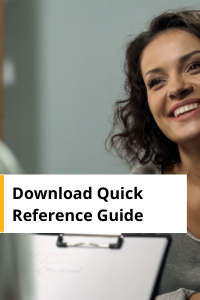
Speaker: Dr Kalpana Stivastava, President of the Indian Association of Clinical Psychologists and one of the most distinguished clinical psychologists in the country with over 30 years of experience in the field. She is a senior scientist from the DRDO and is the recipient of many awards at the National and International level.
Listen to the podcast here or read the transcript below:
Q1: There’s a lot of anxiety and fear arising from uncertainty due to the pandemic. How can people cope at a time like this?
Dr Kalpana: Thank you, Bharath, for discussing this today. It is true that uncertainty can unfold fear and anxiety, and it is very unsettling primarily because human nature demands predictability. We need some certainty to feel safe in our lives but factually speaking, there are very few things that are said in our lives. The COVID-19 pandemic has shown us that life, and things around us can change unpredictably. Uncertainty also leads to fear as you do not know how you would cope with things if they go bad. It leads to anxiety because you’re thinking about how to manage the situation about which so less is known. Since we cannot reduce the uncertainty right now, we should know how to manage the fear and anxiety arising out of this. Let us look at things which are not under our control. The situations around us are not under our control; the various outcomes are not under our control. Then what is under our control? Our lifestyle and habits are under our control, the way we respond to the situation is under our control so, we can choose to react in a particular way, and that is why we should be informed and come both at the same time. Knowledge is power, so stay informed with the correct source of information.
One of the qualities of anxiety is that it is futuristic in nature. It feels like a loss of control. Let us talk about how we can cope with anxiety. It is important not to dwell on the worst-case scenarios as it will trigger more anxiety. Focus on the current situation, and what we can do best out of it. At least take 10 minutes to sit in a quiet place and be still with yourself. Focus on your breathing, listen to music or anything which calms you down. Focus on the quality of sleep, quality of food we eat. To increase resilience, one has to be self-invested.
Q 2- How can people manage their loneliness during this time?
Dr Kalpana: Yes, it is important to discuss loneliness, especially during this lockdown. Loneliness fundamentally undermines a person sense of safety and makes it very hard to live life. Lonely people crave human contact, but their state of mind makes it more difficult to form connections with other people. However, there are few things which are important to combat loneliness. Let us discuss them one by one.
First and foremost is social support, which is very important so, reach out to family and friends, seek support. Having close family members or friends imparts a feeling that you’re not alone in this deal. It can protect you from psychological and physical distress. Those who isolate themselves when they’re stressed or worried may feel more distress in the situation, so keep in touch with them. You will agree with me that the use of technology has come as a big saviour in our situation so it may not be possible to meet with friends in person. However, it is possible to keep in touch with friends via phone calls, Skype calls or video calls. Maintain social connections as much as possible. Stay invested in social networks, helping and supporting each other is a simple and effective way of feeling gratitude; this helps in feeling positive about the things you do. So, let us try to cherish that feeling of gratitude at the end of the day by helping each other. One more important thing that is about the skills enhancement. Try to use some of this extra time in hand to upgrade the skill. Many times, it may happen that he might have wanted to achieve something in life but never really found the time. Perhaps not stand to get on the things we did not have time to do before and enhance your skills, join some online courses. This will give you a sense of achievement and also boost up the valve. Lastly, Let’s talk about the routine. Routine is very important, and it should be structured. Try to follow this rule every day. However, in between one can fill up this space of day with activities of your choice activities like gardening, watching movies, listening to music, reading, etc. this can fill up space. I hope these few simple things may help in combating loneliness.
Q no 3- If people need mental health services, what can they do and whom can they call?
Dr Kalpana: Yes, regarding seeking help, the people who are already under care with someone should continue to be in touch with your respected mental health professionals. Those who are feeling stress and find it difficult to manage with uncertainty and stress during COVID-19 pandemic should seek the help of mental health professionals. Clinical psychologists are trained in helping people to develop healthy ways to cope with stress. Do not suffer alone; share with the professionals. Indian association of clinical psychologist has got a helpline, use that type and number, i.e., 08047192224. It is in Hindi, English, Telugu, Marathi and Tamil languages. Use adversity as an opportunity to bring about change. It can turn out to be precious. Stay safe, stay home, stay positive, take care.




